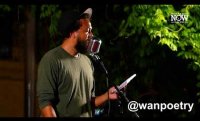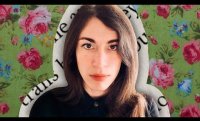Samin Nosrat Reads “Elegy” by Aracelis Girmay
“Listen to me. I am telling you / a true thing. This is the only kingdom.” In this installment of Ours Poetica, a series produced by the Poetry Foundation in collaboration with Complexly, chef and author of Salt Fat Acid Heat: Mastering the Elements of Good Cooking Samin Nosrat reads Aracelis Girmay’s poem “Elegy.”









